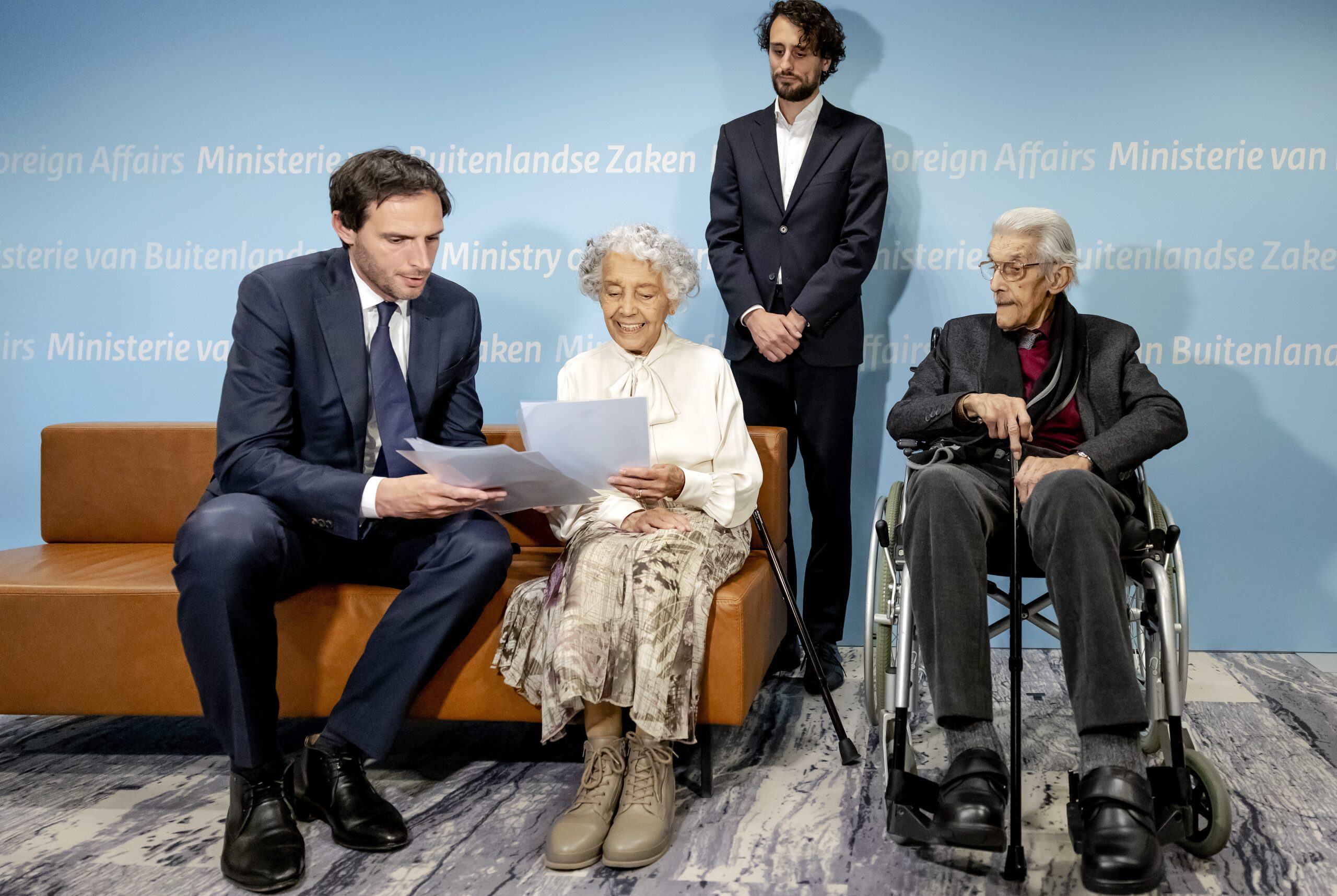Dutch apologise to Anton de Kom’s family, fund VU research

The Dutch government has officially apologised to the relatives of Anton de Kom, a Surinamese author, activist and resistance fighter, who died in a Nazi concentration camp after being shunned by the Netherlands.
In addition, the foreign affairs ministry is funding a chair at Amsterdam’s VU University which will bear his name and focus on the impact of slavery in present-day society.
Foreign affairs minister Wopke Hoekstra met some of De Kom’s relatives on Monday afternoon to offer the cabinet’s apology, including two of his surviving children Ad (96) and Judith (92).
He described their father as a “brave man who fought for justice and equality,” but who “sadly was not spoken about in such words at the time.” And despite the way he was treated by the Dutch state, he “gave his life” for the Netherlands by joining the resistance during World War II, Hoekstra said.
A spokesman for the family said they were “moved and joyful” and spoke of a “historic” moment. “This tribute recognises the courage, vision and tireless commitment of a man who fought all his life for freedom and equality against the spirit of the times,” the spokesman said.
De Kom came to the Netherlands in 1920 where he found a country ignorant about its colonial history. His lectures and articles about Suriname soon earned him the reputation of a left-wing troublemaker, a reputation further cemented when, on his return to Suriname, he started documenting black workers’ dire working conditions.
Labelled a ‘communist agitator’, he and his family were shipped back to the Netherlands where he was effectively barred from employment.
When war broke out, De Kom started working for the underground press until he was arrested in 1944. He died a short time later in Sandbostel concentration camp. His body was buried in a mass grave and his remains were only identified in 1960 when the grave was excavated.
A new edition of De Kom’ life’s work We slaves of Suriname (1934) became a bestseller in 2020, and he also became the first Surinamese national to be included into the canon of Dutch history.
Thank you for donating to DutchNews.nl.
We could not provide the Dutch News service, and keep it free of charge, without the generous support of our readers. Your donations allow us to report on issues you tell us matter, and provide you with a summary of the most important Dutch news each day.
Make a donation